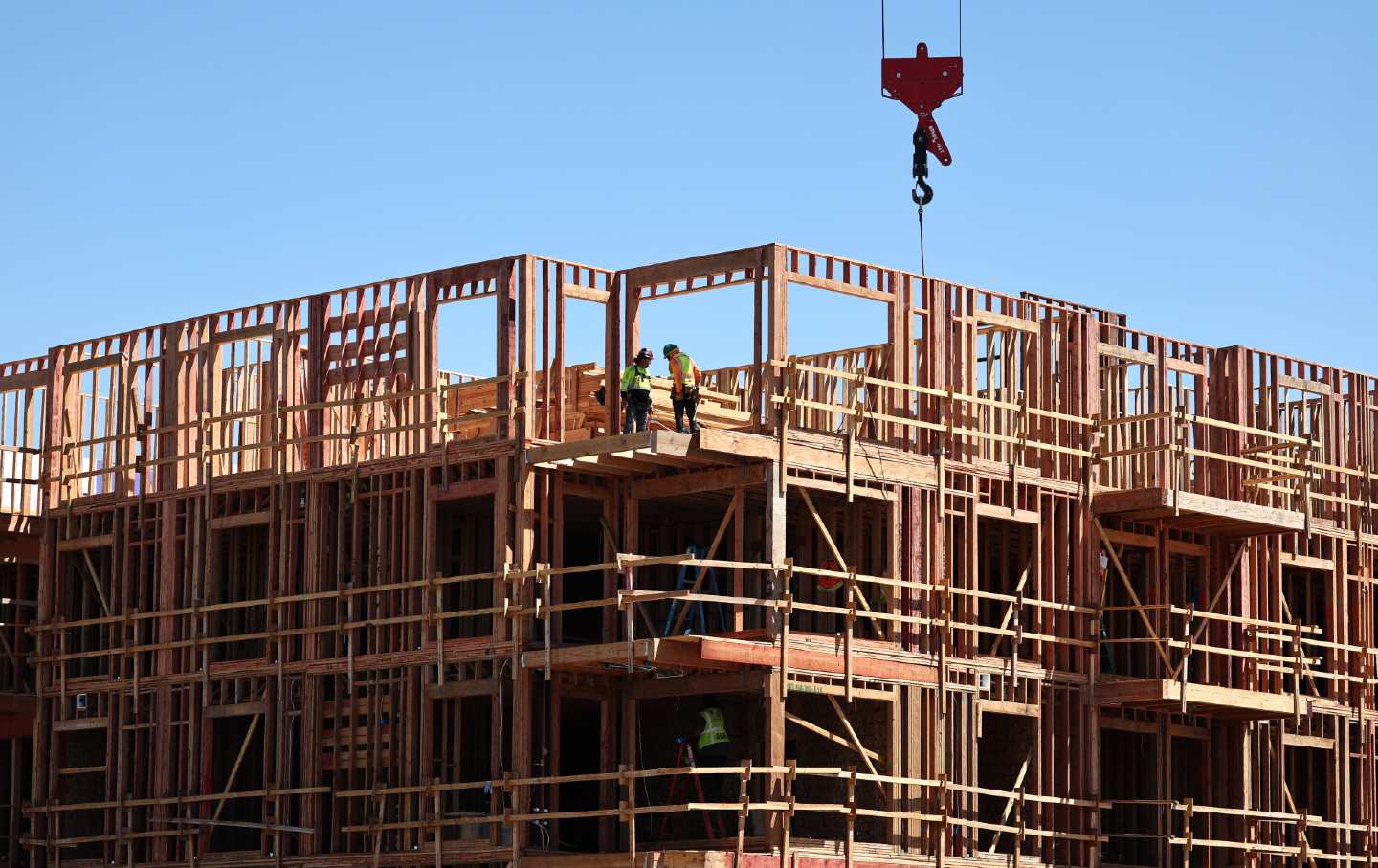April 28, 2025
Pro-housing advocates argue that their understanding of class relations in housing policies offers greater depth and explanatory power compared to the views held by many critics of the "abundance agenda."
Construction advances on a mixed-use apartment complex in Los Angeles, planned to offer over 700 housing units and 95,000 square feet of commercial space as of August 20, 2024.
In their recent book, Abundance, Ezra Klein and Derek Thompson describe the concept as the necessity to build and create more of what society needs for a desirable future, including housing and green energy. Critics from the left, however, perceive abundance as a collection of policy ideas lacking political substance. Paul Glastris and Nate Weisberg, for example, compare it to a revival of centrist liberalism focused on pragmatism and policy innovation. Others, such as Jeet Heer and writers from Rolling Stone, associate it with neoliberalism, suggesting it neglects the central issue of corporate power.
These criticisms echo the arguments long made against the "Yes In My Backyard" (YIMBY) movement. Although YIMBYism is often associated with promoting more housing, it has diverse supporters across the political spectrum, from centrist Democrats to libertarians and social democrats. Contrary to claims that they ignore power dynamics, many pro-housing advocates argue they engage directly with these issues.
Critics of YIMBYism often portray a simplistic class system, contrasting real estate owners with communities. This view overlooks the complexity of housing politics, where class dynamics vary significantly across regions. The polarization between affluent homeowners and local communities plays a significant role in shaping housing policy, often resisting changes that can alleviate shortages.
Opposition to housing development often stems from concerns about property values and community changes. Despite evidence that multifamily construction can reduce rents and improve property values, many affluent homeowners remain resistant due to financial risks and cultural preferences. Some advocacy groups argue that dense housing spurs gentrification, countering with evidence that such development can reduce rents.
Historically, restrictive zoning has served to maintain segregated communities and concentrate resources among white, wealthy residents. However, the distinction between "productive" and "rentier" firms within the real estate industry often complicates this narrative. Developers may resist land-use reforms, fearing competition, while smaller builders struggle against established cartels.
The YIMBY movement initially arose among educated but economically pressured individuals who experienced rising urban rents. These advocates argue that easing restrictions could benefit a broad spectrum of renters and prospective homeowners, countering the interests of entrenched property owners.
Overall, the pro-housing agenda seeks to foster abundant, affordable housing markets, challenging existing power structures within real estate. The YIMBY movement aims to balance these dynamics by advocating for fair and flexible land-use policies that open markets to diverse builders, thereby promoting a more equitable distribution of housing resources.
